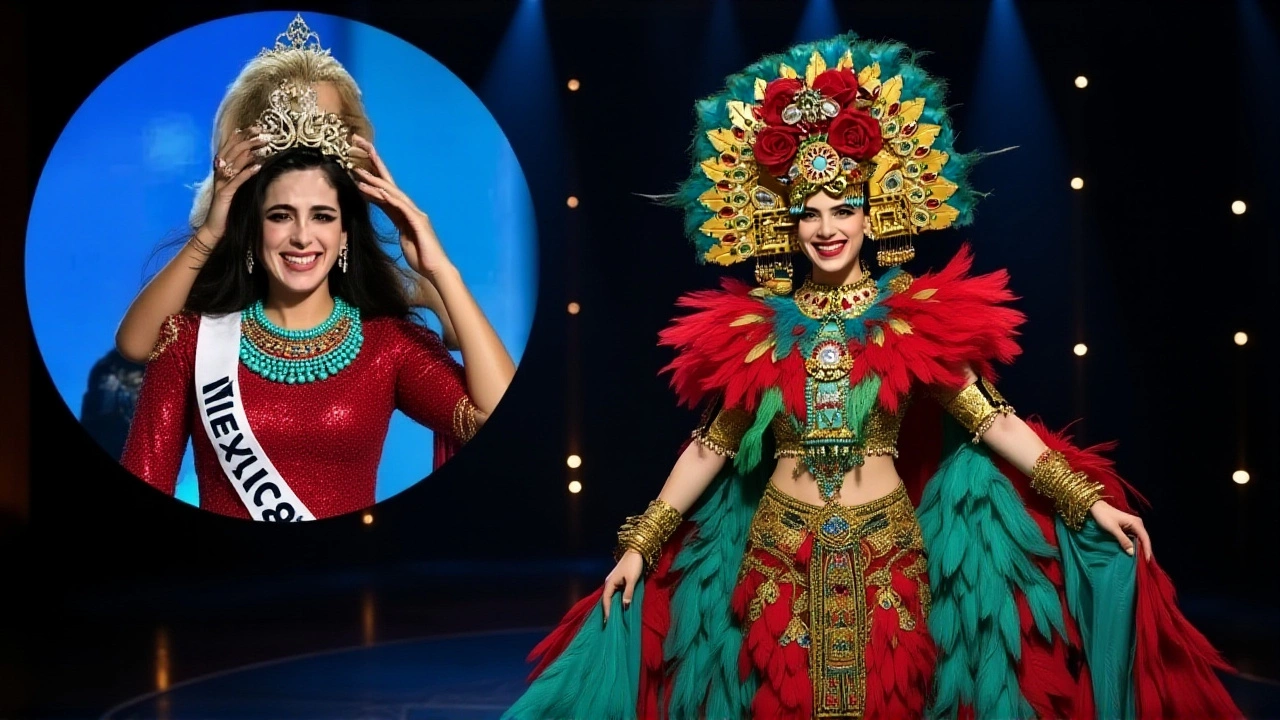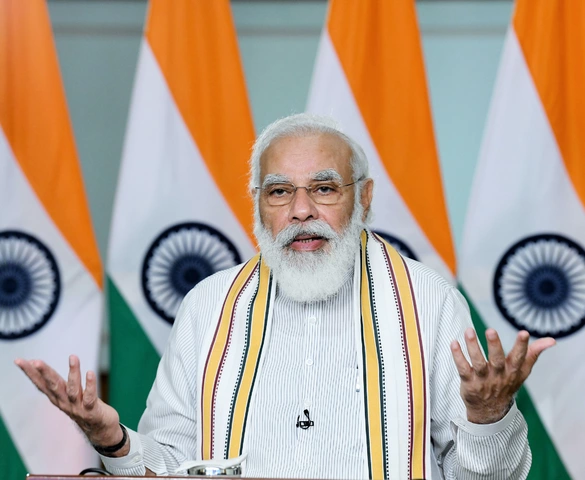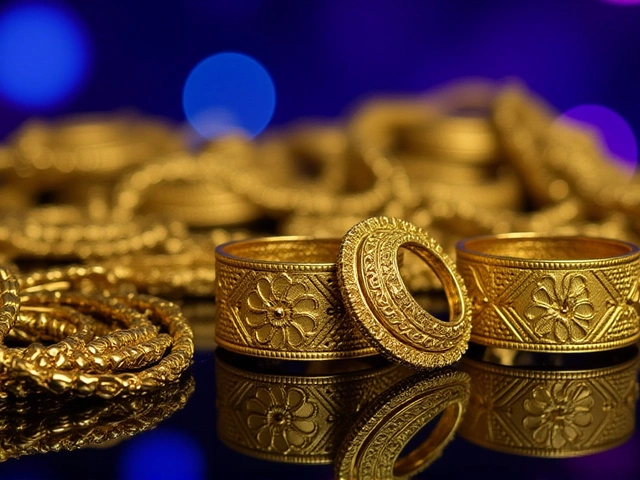When Fátima Bosch Fernández stepped onto the stage in Bangkok on November 21, 2025, blood seeping through her shoe, she didn’t just win a crown—she rewrote the story of what it means to be a global icon. The 25-year-old model and designer from Santiago de Teapa, Tabasco, became Mexico’s fourth Miss Universe winner, breaking a five-year drought since Andrea Meza’s 2020 victory and making history as the first woman from her state to ever claim the title. The moment wasn’t just glitter and gowns. It was grit. It was grace under pressure. And it was a raw, unfiltered act of resilience that echoed far beyond the Miss Universe 2025 IMPACT Arena in Muang Thong Thani.
A Crown Won in Pain
For weeks, Fátima competed with a glass shard embedded in her right foot—a wound she refused to let stop her. Close-up shots during the evening gown and swimwear rounds revealed faint red stains on her heel. No one knew until after the finale. She didn’t limp. Didn’t wince on camera. Didn’t ask for special treatment. "I didn’t come here to be comfortable," she later told reporters. "I came to prove that pain doesn’t define your worth. Action does." The injury, sustained during a last-minute rehearsal mishap in early November, had been ignored by her team to avoid disqualification under pageant rules. But Fátima, ever the strategist, treated it like a secret weapon: a silent reminder of why she was there.
The Walkout That Changed Everything
Weeks before the finale, a private meeting between contestants and Thai pageant directors turned explosive. Fátima, known for her calm demeanor, stood her ground when a director publicly criticized her for "not conforming to traditional expectations" of behavior during rehearsals. Witnesses say he called her "too outspoken" and "difficult to manage." The moment went viral when a contestant leaked audio. Within hours, 18 women—including finalists from Canada, Nigeria, and South Korea—walked out of the venue in protest. ABC7 News confirmed the walkout was unprecedented in the pageant’s 74-year history. The JKN Global Group, which has operated Miss Universe since 2022, issued a vague apology but refused to name the director. The controversy, however, shifted the narrative. Suddenly, Fátima wasn’t just a contestant. She was a symbol.
"Believe in the Power of Your Authenticity"
During the Top 5 interview segment, moderator Maria Menounos asked: "How will you use your voice to empower young girls?" Fátima didn’t recite a scripted answer. She leaned into the mic, voice steady, eyes unblinking: "Believe in the power of your authenticity. Your dreams matter, your heart matters. Never let anyone make you doubt your worth." The room went silent. Then, thunderous applause. HausaTracks later analyzed the moment as the turning point—her raw, unfiltered truth resonated more than polished rhetoric. It was the same voice she’d used in interviews since 2022, when she began speaking openly about her dyslexia and ADHD. "I failed my first university exam because I couldn’t read the instructions," she told BollywoodShaadis.com. "But I learned to think differently. That’s my superpower."
Her academic journey—Fashion and Apparel Design at Universidad Iberoamericana in Mexico City, followed by training at Milan’s Nuova Accademia di Belle Arti and Vermont’s Lyndon Institute—wasn’t linear. She dropped out once, returned after a year of therapy. Her designs, featured in Mexico City’s Fashion Week 2024, often included tactile fabrics and visual cues for neurodiverse wearers. This wasn’t pageant theater. It was lived experience.
Mexico’s Pageant Legacy, Expanded
Fátima joins an elite group: Lupita Jones (1991), Ximena Navarrete (2010), and Andrea Meza (2020). But her win carries deeper cultural weight. Tabasco, a humid, rural state in southeastern Mexico with a population of just over 2.5 million, had never produced a national finalist—let alone a global winner. Her victory, as noted by HausaTracks, has already sparked a surge in local pageant applications. In Santiago de Teapa, her hometown of 15,000, children now wear homemade tiaras to school. President Andrés Manuel López Obrador’s office issued a formal statement of pride, though the exact wording remains unpublicized. What’s clear? Mexico’s identity in global beauty pageants is no longer about Eurocentric standards. It’s about resilience, voice, and unapologetic authenticity.

What Comes Next
Her reign begins November 22, 2025, with an 18-month global ambassadorship for UNICEF’s inclusive education initiative. She’ll visit schools in 50 countries, advocating for curriculum reforms that accommodate neurodiverse learners. She’s already partnered with the Mexican Ministry of Education to pilot a classroom toolkit based on her own learning strategies. Her platform isn’t charity—it’s systemic change. And she’s not waiting for permission.
Behind the Name: Identity and Heritage
Her surname, Bosch, traces back to Catalan and German roots from 19th-century migration to Tabasco. But Fátima identifies as culturally Mexican, Catholic, and deeply rooted in her community. "My abuela taught me to pray in Spanish, cook pozole in clay pots, and never apologize for taking up space," she said in a pre-pageant interview. That duality—European name, Indigenous-Mexican soul—is part of her power. She doesn’t erase her past. She elevates it.
Frequently Asked Questions
How did Fátima Bosch Fernández’s injury impact her performance at Miss Universe 2025?
Fátima competed with a glass shard embedded in her foot for over three weeks, enduring pain during rehearsals and live segments. She refused medical intervention to avoid disqualification and maintained flawless poise on stage, with blood visible in close-ups during the evening gown and swimwear rounds. Her ability to perform under such physical duress became a symbol of resilience, deeply resonating with viewers and judges alike.
Why did contestants stage a walkout during the Miss Universe 2025 pre-event meetings?
Contestants walked out after a Thai pageant director publicly criticized Fátima Bosch Fernández for "not conforming to expectations," which many interpreted as bias against her assertiveness and neurodivergence. The incident, captured in leaked audio, sparked solidarity among 18 contestants from diverse nations. The walkout, unprecedented in pageant history, forced the JKN Global Group to issue a public apology and review its conduct policies.
What makes Fátima Bosch Fernández’s win historic for Mexico?
She is Mexico’s fourth Miss Universe winner, following Lupita Jones (1991), Ximena Navarrete (2010), and Andrea Meza (2020). But she’s the first from Tabasco, a state with no prior finalists. Her win breaks regional stereotypes and redefines Mexican representation—not just by beauty standards, but by neurodiversity advocacy, rural roots, and unfiltered authenticity, shifting the national narrative around who gets to be seen as a global icon.
How is Fátima Bosch Fernández using her platform for neurodiversity?
As UNICEF’s special ambassador for inclusive education, she’s launching classroom toolkits in 12 countries that use visual aids, flexible pacing, and sensory-friendly materials—strategies she developed from her own experience with dyslexia and ADHD. She’s also lobbying for teacher training programs in Mexico and beyond, arguing that neurodiverse students aren’t broken—they’re differently wired. Her advocacy isn’t performative; it’s rooted in her academic journey and personal testimony.
What’s the significance of her victory for women in rural Mexico?
Fátima’s win has ignited a cultural shift in rural communities like Santiago de Teapa, where girls were rarely encouraged to pursue public roles. Local schools are now hosting "Dream Days" where girls present projects on leadership. Her story proves that coming from a small town doesn’t limit potential—it can be the foundation of global impact. Enrollment in youth pageants in Tabasco has surged by 300% since her crowning.
How did Fátima Bosch Fernández’s background in fashion design influence her Miss Universe journey?
Her training at Universidad Iberoamericana and Milan’s Nuova Accademia di Belle Arti shaped her signature style: minimalist elegance with tactile, neuro-inclusive fabrics. She designed her own evening gown for the finale—a flowing ivory piece with embedded texture patterns to help her ground herself during moments of sensory overload. Her fashion background didn’t just make her look good—it made her feel safe, confident, and in control.






Write a comment